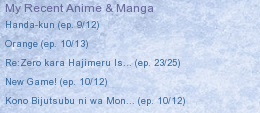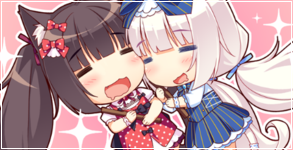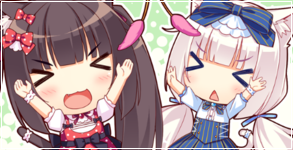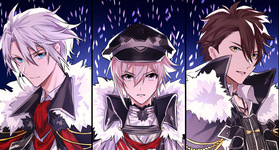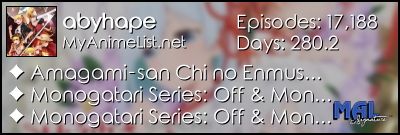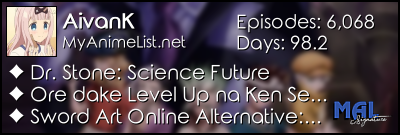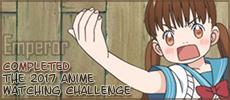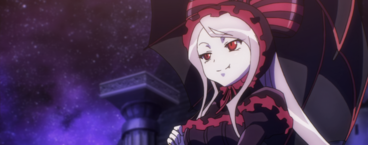I realise I am a new 'face' here, but I've been around on some other anime forums in the past and just had to find one and jump in for this one. I've watched literally hundreds of animes (many of them as they came out) - and Key's have definitely been among my favourite (I don't do the VN as I'm not into the 'adult' content). The original Kannon (and remake), Clannad, Air- seen them all. I really expected to love Clannad and was enjoying it, but the end of it (the 'first season', NOT the After Story) let me down- it didn't have the intensity that struck me from anime like Kannon. It was animes like that which really hooked me on anime: as it wasn't the "Dragonball Z" stuff that drew me to anime, so much as the really deep storylines (like Evangelion, Kannon, Angel Beats, Stein's Gate, and many others). Lately I have felt like a lot of anime have drifted increasingly away from that- that amazing ability to mix the absurd, the funny, the painful, the frightening, and the beautiful- and bring it to a powerful, and inspiring ending. My brother once put it this way after watching Angel Beats: "the (Japanese anime creators) like to rip your heart out and hold it beating in their hand, squeeze it, crush it, throw it on the ground, jump on it, light it on fire... and then sweep up the ashes into a neat pile, and hand it back to you." ;) I thought it was a comical but apt example- its a profoundly intellectual and emotional experience, and extremely cathartic.
So when Clannad: After Story came out, suddenly I LOVED Clannad and it made the entire first season worth it- as though the first season/series was all just to make the After Story that much BETTER. I had watched the first season with my baby boy in my lap for most of it- I sang the "Dango" song to him before he could speak, and as a full time parent he probably heard more Japanese than English (despite us not having Asian heritage ;) ). And then my ex-wife lost her father to cancer and went through severe depression, and gaming addiction- and about that time the After Story came out. It was intense- especially watching it as a parent, by son about the age of the little girl... it left me emotionally ravaged, and yet at the end feeling so moved. It really helped me to appreciate what I had so very deeply- and I had almost lost my son once, at a pool, so that intensity was amped up more.
And then- my ex's depression increased, she went to be with a parent to recover, and wanted a divorce- she had my son. I was left alone in a home, working, and saw my son two weeks in two years. The three year divorce ended, I remarried- yet even then see my son only once a year, living so far apart. And I watch it again- and it took on entirely new meaning.
So how does that relate to this? Well, as someone who majored in cross cultural work and wanted to work overseas- to go outside my cultural box and serve others, and to bring back to my culture the importance of what was going on in the world- this episode really reminded me a lot of Angel Beat's (where they suddenly connected the main character's story to the importance of donating organs) with that intensity from Clannad: After Story and Angel Beat's, or the start of it. It's the first episode in this anime to really amp it up to the level of those- to give the anime a signficance far outside its scope. A scope that encompasses what is going on in the world around us- what soldiers face, what the consequences of war are, the need of children overseas...
In a country which is divided and bursting at the seems, trying to get its head around its own need but also the tremendous need of the world around it- and the fact that the younger generations are now connecting to people all over the world (and my wife herself is from the EU- and speaks 4 languages fluently, is working on two more). I've had friends in Serbia, England, Netherlands, Greece, China, Africa, South America, Canada, Japan... How can you go to war with a country when you know your friends, family, and/or their friends/family will die? When in the end only a select few are the ones at fault- a group, or people in power?
This is the question that I feel anime has wrested with over the years- this idea of noble and evil people being on both sides in a conflict, but the real 'evil' being in the corruption of leadership. In the end the people really 'at war' are the chess players, and the rest are chess pieces - intelligent ones with free will- that the leaders are trying to convince need to fight the 'enemy'. Unity across the world threatens this- because it loosens the grip of the powerful. World peace threatens this- and older generations cling to old hatreds that younger ones don't carry on.
This episode really hits all of this. I look forward to seeing where the anime will go next- and I have a feeling it will get even more intense (if it doesn't take this a meaningful direction I might be disappointed). I also really have liked the episodes earlier in season two that dealt with the main character trying to fit into his mind an underestanding of the world, and reaching that ceiling after suddenly understanding the meaning of love (to me, this is a very real truth- the highest concept is love, but not romantic love, sacrificial love- a love that puts others needs above our own, that can love our enemy, and love our neighbour as ourselves).
This is definitely a very, very intense and brilliantly written anime (and likely visual novel) and I look forwards to more!
-Coro |


